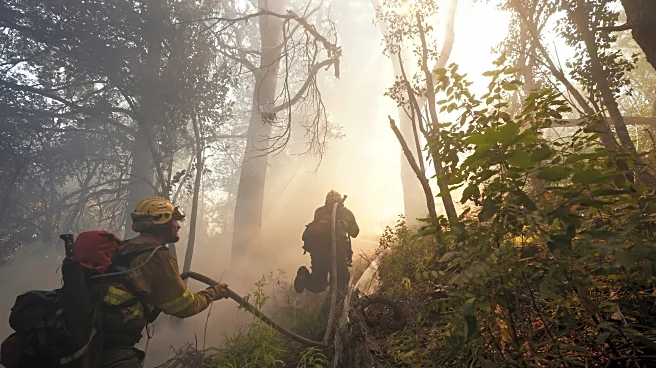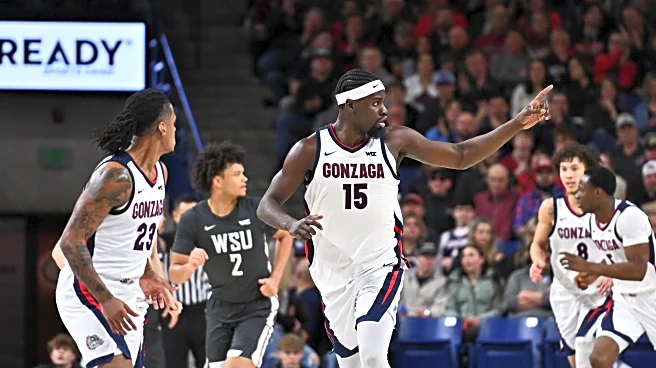What's Happening?
The inaugural Doha Film Festival is set to begin with the Middle East premiere of 'The Voice of Hind Rajab,' directed by Kaouther Ben Hania. The festival will feature regional premieres, including Steven
Soderbergh's 'The Christophers,' with Soderbergh and Michaela Coel attending. The event aims to elevate Qatar's profile in the global film industry. The festival will showcase films highlighting Palestinian narratives and other regional stories, with notable attendees such as Rami Malek. The Doha Film Festival is organized by the Doha Film Institute, transforming its existing Ajyal Film Festival into a more ambitious international event.
Why It's Important?
The Doha Film Festival represents Qatar's growing cultural presence and ambition in the film industry. By hosting international premieres and attracting prominent figures, the festival aims to position Qatar as a key player in the Middle East and North Africa (MENA) region's film landscape. This initiative aligns with Qatar's broader strategy to diversify its economy beyond oil and gas, investing in cultural and media sectors. The festival's focus on regional stories and international engagement can foster cultural exchange and enhance Qatar's soft power.
What's Next?
The Doha Film Festival will run from November 20-28, featuring various competition strands and special screenings. The event is expected to attract industry professionals and audiences, potentially leading to collaborations and partnerships. The festival's success could influence future cultural initiatives in Qatar and the MENA region, encouraging more investment in film and media. The Doha Film Institute's ongoing efforts, including the Qumra co-production market, will continue to support emerging filmmakers and projects.
Beyond the Headlines
The festival's emphasis on regional narratives, particularly Palestinian stories, highlights the role of cinema in addressing political and social issues. By providing a platform for diverse voices, the festival contributes to cultural dialogue and understanding. This approach underscores the importance of film as a medium for storytelling and advocacy, challenging stereotypes and fostering empathy across borders.












